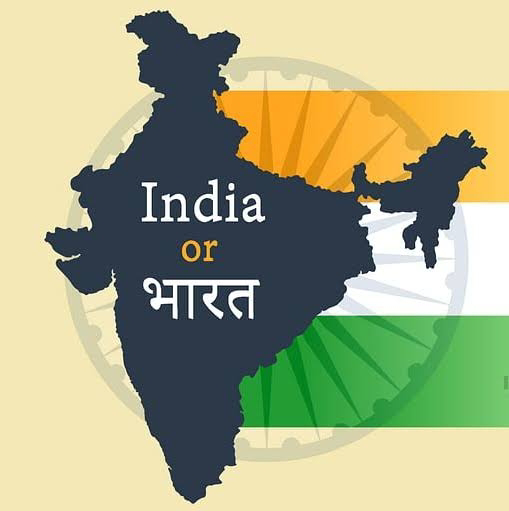India That is “Bharat”
Author:- Tanmay Amit Jain, a student at Bennett University (Times of India Group)
Introduction
India is a fascinatingly diverse country that is woven deeply into its history, culture, and traditions. India is a nation that defies simple classification, with its chaotic streets in Mumbai, serene backwaters in Kerala, breathtaking Himalayan peaks in the north, and beautiful beaches in the south. The core of India as Bharat is examined in this essay, along with its dual identities, historical importance, and the vibrant fusion of traditional values and modernity that characterises this amazing country. It has been up for discussion and debate for a while now to alter India's official name to Bharat. Despite the fact that there are reasons for and against this development, it's crucial to comprehend the historical, cultural, and linguistic factors that surround it.
Historical Background
In Indian mythology and history, the name Bharat has great significance. As one of the world's oldest holy writings, the Rigveda, makes allusions to it, it may be traced back to ancient times. Hindu legend claims that Bharat was the son of Shakuntala, a renowned love tale that has long been honoured in Indian literature, and King Dushyant. In the past, the whole Indian subcontinent was referred to as “BHARATVARSHA”, highlighting its identity and oneness. It represented a place that extended beyond its physical limits and was united by similar cultural norms, languages, and customs. India was the name given by Britisher during their rule over us which shows the British legacy to be continued.
The Influence of Ancient Traditions
The identity of modern India has a pronounced imprint of Bharat, the ancient India. Traditional customs, rites, and ideologies still influence modern society. With roots in ancient Indian traditions, yoga and meditation are now widely popular due to their positive effects on both physical and mental health. The traditional medical system of Ayurveda is still a crucial component of healthcare in India and beyond. Dharma, which emphasises moral and ethical obligations, is a deeply embedded idea in Indian culture. It offers direction for people's personal and professional life and promotes a feeling of community and accountability.
National Identity and Global recognition
The argument made in favour of the name change is that it would increase pride and sense of national identity. They think that identifying as Bharat will strengthen bonds among residents by reminding them of their shared cultural heritage and historical origins. The possibility of misunderstanding it creating worldwide is one issue with altering the name. India is a name that is well-known around the world, so changing it to Bharat could necessitate strenuous diplomatic measures to prevent the identity of the nation from being lost or misconstrued. A nation's name change is a difficult procedure that involves logistical, administrative, and legal difficulties. It will necessitate modifying the Indian Constitution, which is a protracted and difficult process. Rebranding governmental records, organisations, and international agreements would also incur expenses.
Balancing Act
In conclusion, the proposal to change India to Bharat is not without a merit. It represents a desire to reconnect with the country’s rich cultural and historical past. The meaning of Bharat comes from the root “भाया रता इति भारतम” it means one who pursues light is a Bharatiya. Light in this case is knowledge, it’s wisdom, it’s personal enlightment and so on. And the society that is build on this foundation is a rich society. A rich society is certainly financially as India has been for thousand years. So, it is not wrong to officially change India to Bharat.




![Freedom of Speech in India [Indian Supreme court and Law of Sedition]](https://blogger.googleusercontent.com/img/a/AVvXsEiGLLUmLKq5Da6xDZplasOZHKRj-jOhWPkoeuy0_Eq757tUpOiHz-xooXwIlAjF0-hmBfi-TtMIv6on_sVgBXVq4wbWwnbsqLOcNX22S8C2aSq-ZuK3vn9wWAx8tXByYOBfwc0hs6b8RJV84YNFG2greouGKjup6g8kN-xVlchW33VHdSSmrhLC1BUEVbGp=w680)





